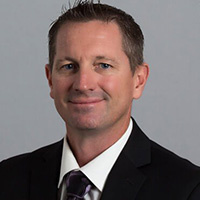Eagle Felony Lawyer, Idaho
Not enough matches for Eagle Felony lawyer.
Below are all Eagle Criminal lawyers.
Ryan William Tatum
✓ VERIFIEDCriminal, DUI-DWI, Felony, Misdemeanor
Ryan W. Tatum is a founding partner at Tatum McBride Law, P.C., a firm dedicated solely to Criminal Defense. Tatum McBride Law, P.C., devotes their f... (more)
Ronald Robert Shepherd
✓ VERIFIEDAccident & Injury, Divorce & Family Law, Criminal, Lawsuit & Dispute, Civil & Human Rights
Ron knew from an early age that he wanted to pursue a profession centered around helping others. Of course, there are many ways to be of service. Yet ... (more)
Robert Wade Curtis
Landlord-Tenant, Trusts, Divorce, Misdemeanor
Status: In Good Standing Licensed: 52 Years
Kevin M. Rogers
Divorce & Family Law, Criminal, Bankruptcy & Debt, Litigation
Status: In Good Standing
FREE CONSULTATION
CONTACTJeffrey R. Townsend
Real Estate, Industry Specialties, Criminal, Business
Status: In Good Standing Licensed: 25 Years
Joel Dee Tague
Divorce & Family Law, Immigration, Criminal
Status: In Good Standing Licensed: 12 Years
Jolene C. Maloney
Divorce & Family Law, Criminal, Bankruptcy & Debt
Status: In Good Standing Licensed: 21 Years
Michael Kulchak
Litigation, Divorce & Family Law, Criminal, Business
Status: In Good Standing Licensed: 20 Years



